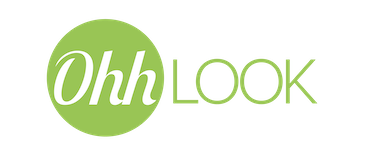ChatGPT has exploded in popularity since its release in 2022. With access to a wealth of information to learn from, this AI has only become more advanced.
People are constantly looking for new ways to use AI to revolutionize their lives and make working far more efficient. However, there’s been some debate over whether using ChatGPT is ethical, and if the content generated is really as unique as it seems.
We’re here to explain how this AI works, whether it’s accurate, how original ChatGPT content is, and more.
How ChatGPT Works
Contrary to popular belief, ChatGPT doesn’t work like a thinking human brain. It’s an advanced language model capable of learning from examples of text to mimic human dialogue and generate text.
AI language models are making life and work so much easier. It’s being used to help write articles, fix code, answer emails, create promotional materials, and more. But how does it work?
ChatGPT takes your question or prompt and dives into information databases to find articles, books, and other materials that are most similar to the input you gave it (either in content or in function). The Generative Pre-Trained Transformer (GPT) then identifies patterns in the vast amounts of data to provide a common response by predicting one word after another.
In other words, ChatGPT is an advanced search engine capable of splicing together customized answers to your questions.
It is important to note that at no point does ChatGPT understand what you are asking or what it is saying in response. The illusion of consistency and thought appears because the AI prioritizes your own conversation with it over other sources for reference, mimicking a working memory.
Does ChatGPT Steal Content?
This is a controversial topic. Many writers and artists have come out against the use of ChatGPT, claiming that training the model using human-made content violates copyright laws (more on that further down).
And while AI content has made it much easier for people to generate pictures and written text quicker and cheaper, it has contributed to the lack of work available to skilled artists and writers.
Because of the way ChatGPT works, its originality is up for debate. It predicts words based on vast amounts of human-provided information, which means it cannot come up with any new information or reach any conclusions on its own based on the data it receives.
Sometimes small chunks of information are even produced word-for-word from the source material. Strictly speaking, ChatGPT doesn’t “create ” anything—it re-words and rearranges content. While it’s unlikely to light up a plagiarism checker, there are programs that can pick up on ChatGPT-produced content.
Is ChatGPT Accurate?
Just like the humans that made and use it, ChatGPT isn’t perfect. The reason ChatGPT is more popular than other GPT platforms is because it has access to one of the largest databases of information. This means that the content it provides is more likely to be correct than some other GPTs but isn’t guaranteed to be 100% accurate or even up to date.
Even among scientific and academic studies and/or publications, many educated opinions contradict one another. And, with the exponential rate that information is being discovered, processed, and published, many things that were previously thought to be true have been debunked or updated.
This means even ChatGPT might not be receiving the right information, or even a well-rounded view of the context. ChatGPT itself has no way to verify the accuracy of any information it presents.
Language models were simply made to sound as much like a real person as possible. They do not vet the information they return to you. All the developers can do is try their best to limit their reference data to correct information while also making it broad enough to be effective.
However, AI will pick whichever information it wants to present, and it is fully capable of giving you an incorrect answer even based on correct references.
The new ChatGPT 4 update allows the AI to search the web in an attempt to give more accurate information. When requested, it will provide a link to a source that verifies the information you requested, but even this can’t be trusted as fact, since the AI simply searches the internet for a link that it believes is most relevant to the text it is generating. For better or worse, you’re basically getting the first few results from a Google search, just repackaged.
Because of this, if you’re planning on using ChatGPT content for your business and not just personal use, we recommend hiring a proofreader and editor to make sure the information is accurate and flows naturally.
AI and Copyright Laws
If you plan to use ChatGPT to augment your own work, one of the first questions on your mind will likely be, “Who owns the copyright to AI generated materials?” That’s a bit of a tough question to answer, as the laws are still catching up to the sudden boom in ChatGPT use.
Technically, copyrights extend to any “original works of authorship fixed in any tangible medium of expression.” However, in the United States, there is an additional criteria that states, “human authorship is a bedrock requirement for copyright.”
So, technically speaking, the source material the AI draws from is copyrighted, but ChatGPT content is not. If you provide ChatGPT with copyrighted material that is not your own, you may be subject to being sued if the generated content is too similar to the source.
Generally, the more creative input a human has contributed to their collaborative efforts with AI, the stronger their claim is to copyright.
For example, if you were to have AI generate a story based on your original characters and ideas, it may still be considered a derivative work, leaving it possibly outside the scope of copyright.
However, if you create a prompt for the AI with detailed instructions based on your own creative work, then take what ChatGPT generates and edit it to create something new, your claim to copyright ownership is much more substantial.
There are already books claiming ChatGPT as a co-author that have been copyrighted and sold. Until the laws catch up, we recommend keeping track of all the changes you make to your AI generated content so that you can provide proof of your creative involvement if the need arises.
Using ChatGPT VS Hiring Copywriters/Ghostwriters
So, all of this leaves us with one more question. Is it better to learn how to use ChatGPT to generate content for your business, or to hire a real copywriter/ghostwriter? This really comes down to what kind of content you’re looking for.
If you just need something small, like an email, a short and simple article, or something you can build off with your own creative effort, ChatGPT might be a useful tool. And that’s how it’s meant to be used—as a tool to assist you with your own work, not as a flawless content generator.
However, keep in mind that ChatGPT also has a bit of a learning curve and will require you to get used to the way it responds. Again, we recommend hiring a proofreader or editor to look over any content you create with ChatGPT anyway, to make sure it is accurate and error-free.
If you are looking for long or in-depth content that is well researched and entirely unique to your business, you’ll want to hire a copywriter. A human writer will also be able to give your written content the right tone and know how to appeal to your specific audience.
More creative works, like fiction or autobiographies, also tend to fall flat when generated by AI. If you want unique characters, vivid descriptions, and impactful prose that stands out from the crowd, you’ll want to hire a ghostwriter for the job. Or, do it yourself the old-fashioned way, using ChatGPT as a helpful idea-generator when you’ve hit writer’s block.
We hope this article has answered all your questions and wish you luck finding the best avenue to producing the content you need.
Connect with local writing experts in your area.



